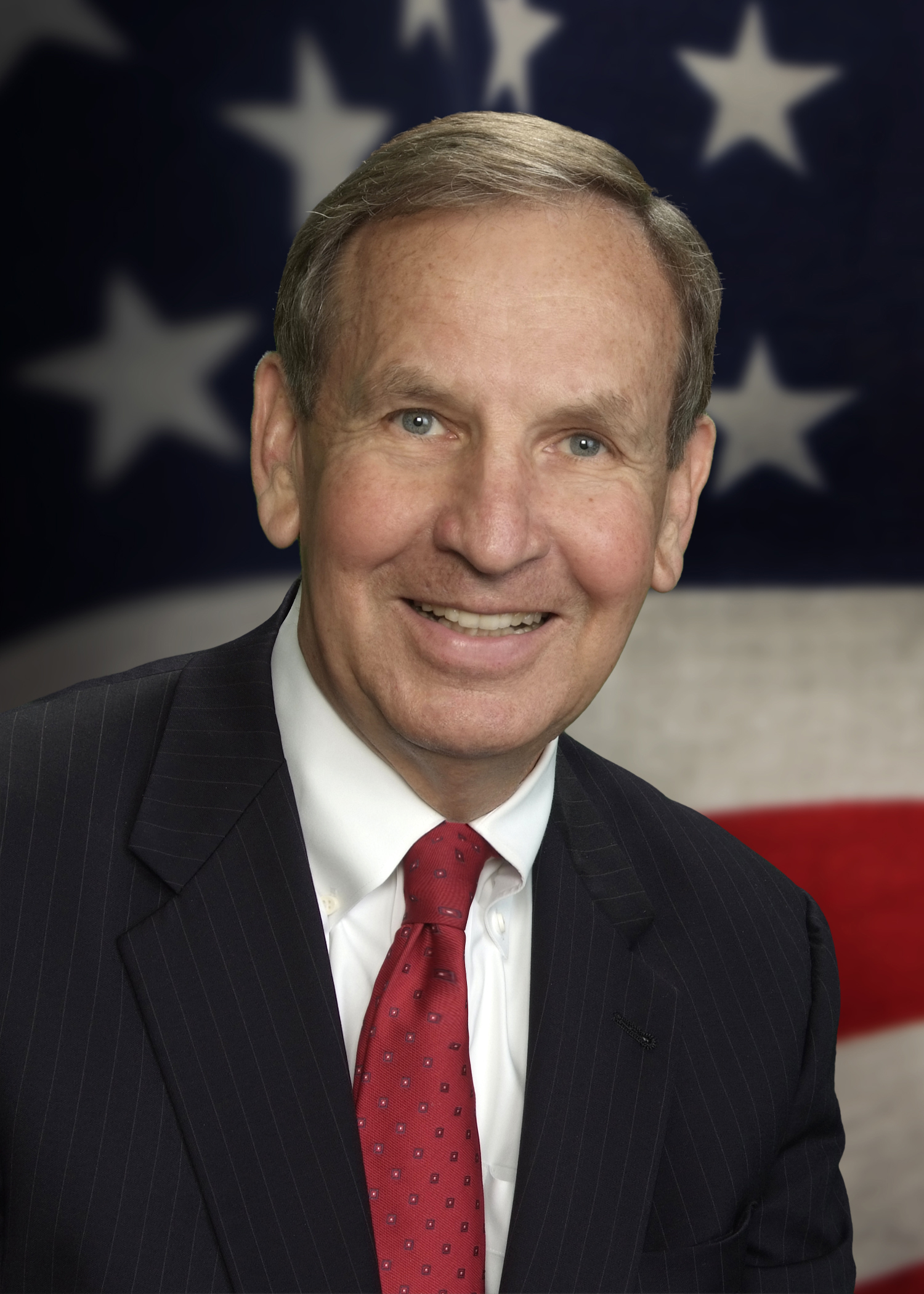Richard T. Crowder named C.G. Thornhill Professor of Agricultural Trade

Richard T. Crowder, professor of agricultural and applied economics in the College of Agriculture and Life Sciences at Virginia Tech, was recently named the C.G. Thornhill Professor of Agricultural Trade by the Virginia Tech Board of Visitors.
The C.G. Thornhill Professorship for Agricultural Trade was created in 2012 by C. Gordon Thornhill Jr., who earned his bachelor’s degree in animal science from Virginia Tech in 1975. The intent of the endowment is to help strengthen the curriculum in agricultural trade and to help prepare people entering the agriculture industry, who will face the challenges of participating in an expanding world market. Recipients hold the professorship for a period of five years.
With more than 40 years of experience in the agriculture and food sector, Crowder has dedicated his career to advancing the interests of farmers, ranchers, and the industries that produce food and fiber.
Crowder spent most of his career in the food industry in executive positions with Wilson & Company, Pillsbury, Armour Swift Eckrich, DEKALB Genetics, and the American Seed Trade Association.
He served as the U.S. chief agriculture negotiator from January 2006 to May 2007, with the rank of ambassador. In this position, Crowder was responsible for directing all U.S. agricultural negotiations worldwide. For this service, he received the Distinguished Service Award by the United States trade representative, Executive Office of the President. He also served as a senior advisor to the United States Trade Representative from May 2007 to April 2008. Crowder spent most of his career in the food industry in executive positions.
In 1989, Crowder became undersecretary of international affairs and commodity programs for the U.S. Department of Agriculture. In this position, he managed the 1990 Farm Bill, was the U.S. agriculture negotiator for the Uruguay Round, and headed two presidential missions to the former Soviet Union to address food needs and policies of the former Soviet republics. He received two additional presidential appointments to serve on the board of directors of the Commodity Credit Corporation and the Rural Telephone Bank.
He currently serves on the board of directors of Neogen Corporation and Smithfield Foods. He is also a member of the board of trustees of the Farm Foundation.
After joining the Department of Agricultural and Applied Economics in 2008, Crowder established an annual conference to provide the Virginia agriculture and forestry industry information on the fundamentals and importance of agricultural trade. Recognizing the strong partnership among Virginia’s agencies, nongovernmental organizations, and Virginia Tech, Virginia Gov. Bob McDonnell expanded the impact of the event to create the Governor's Conference on Agricultural Trade in 2012.
Crowder has become a mentor to many students and repeatedly gets high evaluations from students in a capstone class that he established when he first joined Virginia Tech. In it, students focus on the role strategy and negotiations and play in all organizations.
He has received numerous awards, including the Virginia Tech Alumnus of the Millennium in 2000, the Virginia Tech Agriculture Alumni Hall of Fame, and Outstanding Alumni Award from the Virginia Tech Graduate School. In 2013 Crowder was awarded with the American Farm Bureau Federation’s Distinguished Service Award in recognition of his career of service to agriculture
Crowder received his bachelor’s degree and master’s degrees from Virginia Tech and his doctoral degree from Oklahoma State University.
Thornhill, for whom the professorship is named, has had an illustrious career since graduating from Virginia Tech. He has established one of the largest livestock exporting businesses in the U.S. and was named Exporter of the Year by the Virginia Agribusiness Council.
He said his education at Virginia Tech not only gave him the tools he needed to succeed but also helped him develop relationships that have played a key role in his business over the years.
“Virginia Tech opened the world to me,” he said. “I wanted to give back to the university.”
Dedicated to its motto, Ut Prosim (That I May Serve), Virginia Tech takes a hands-on, engaging approach to education, preparing scholars to be leaders in their fields and communities. As the commonwealth’s most comprehensive university and its leading research institution, Virginia Tech offers 240 undergraduate and graduate degree programs to more than 31,000 students and manages a research portfolio of $513 million. The university fulfills its land-grant mission of transforming knowledge to practice through technological leadership and by fueling economic growth and job creation locally, regionally, and across Virginia.




